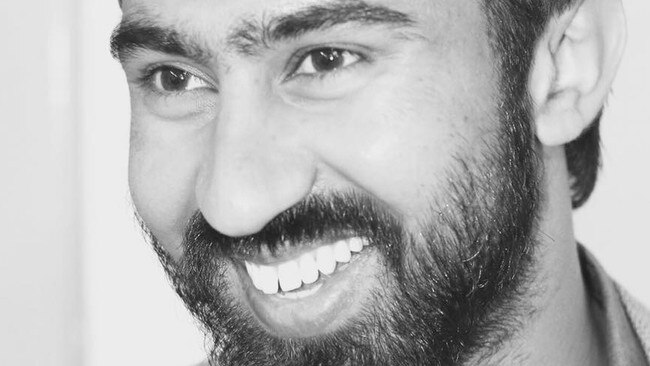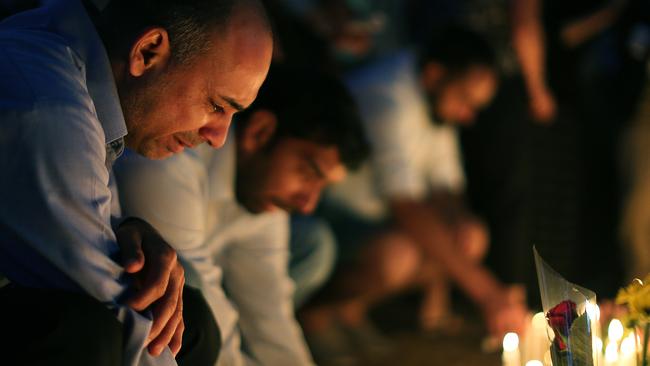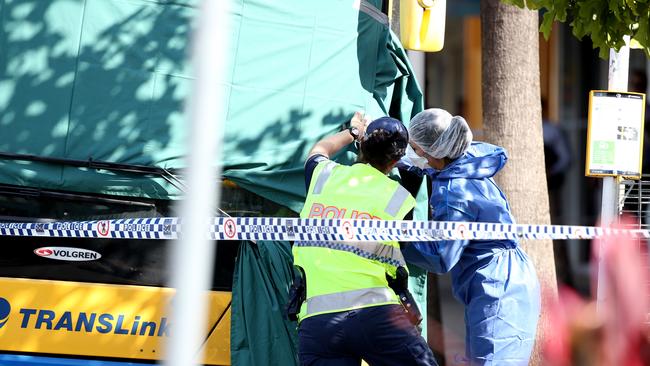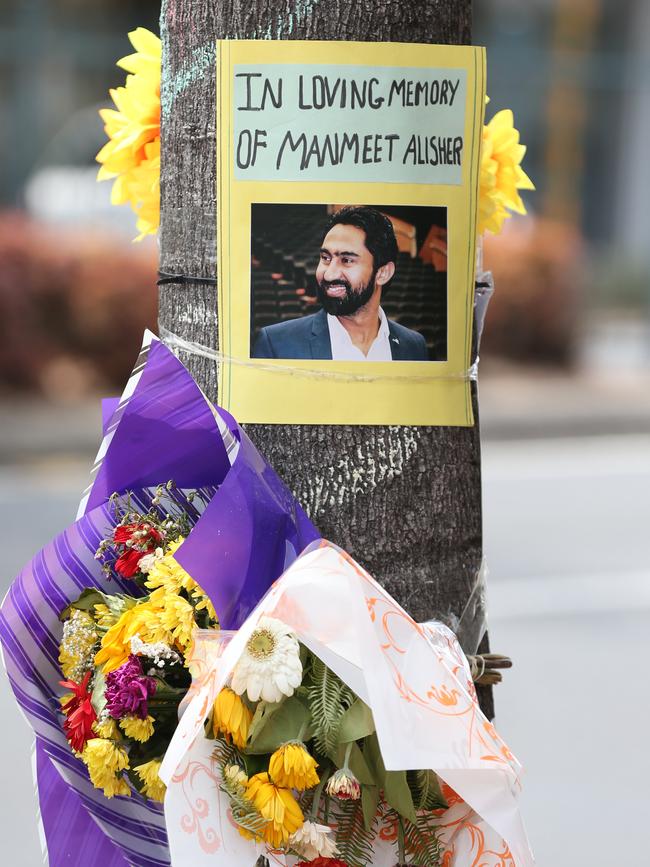Coronial inquest into Brisbane bus driver’s petrol-bomb killing to put Queensland Health under microscope
The man who killed a Brisbane bus driver with a petrol bomb had been discharged from mental health services two months before the attack. Why Queensland Health allowed him to be “effectively left untreated in the community” will be the focus of a coronial inquest.
True Crime
Don't miss out on the headlines from True Crime. Followed categories will be added to My News.
QUEENSLAND Health will be put under the microscope in an upcoming inquest into the petrol-bomb killing of Indian bus driver Manmeet Sharma.
The 29-year-old was in 2016 slain by a delusional man who had been discharged from mental health care services months earlier.
In August last year, Anthony O’Donohue, 51, was ordered by the Queensland Mental Health Court to spend the next 10 years in a high-security facility for the criminally insane after Justice Jean Dalton found he was of unsound mind and unfit to stand trial.
Moorooka bus fire inspires launch of Turn off the Television, Turn on the Neighbourhood
Hundreds gather to remember Manmeet Sharma

He had originally been charged with murder after he boarded a bus at Moorooka more than three years ago and set Mr Sharma alight.
During the incident, 14 passengers were trapped in the bus and had to be freed by a passer-by.
O’Donohue never stood trial over the death but was placed under a forensic order, which will not be revoked for at least a decade, after the court heard he suffers from paranoid schizophrenia and delusional thinking, which caused the killing.
The non-revocation order was a landmark decision made by the court at the time after Justice Dalton found it was “an extraordinary case and the issues of dangerousness are quite serious”.

In March next year, the Queensland Coroners Court will look at the horrific killing, but focus on the circumstances that led to Mr Sharma’s death.
In a pre-inquest hearing held in Brisbane today, counsel assisting the coroner Rhiannon Helsen told the court the proposed inquest would consider the mental health treatment provided to O’Donohue by the various mental health services in the State, including Metro South Mental Health Service.
O’Donohue was a man plagued with delusions relating to distrust of unions, the Brisbane City Council and as an extension, bus drivers, a court has previously heard.
He had been mentally ill for more than 15 years before the attack on Mr Sharma, but had stopped taking his medication in late 2014 and rarely engaged with a doctor.
The Coroners Court today heard Mr O’Donohue had been provided with oral medication but did not take it, instead filling the scripts to avoid suspicion.

It wasn’t until 2016, that his schizophrenia deteriorated to the point he loaded the molotov cocktail into a bag, before boarding a bus around the corner from his home and placing it on Mr Sharma’s lap as he greeted him.
An involuntary treatment order had been revoked shortly before the incident after doctors found the man was “at a low risk to others”, the inquiry heard today.

By October 2015, conversations around discharging him from the community mental health services began, the Coroners Court was told.
O’Donohue was formally discharged in August 2016, despite failing to attend a final consultation with a doctor.
Later that month, he tried to attend a consultation for his mental health but was told he had been discharged from the service – two months before he killed Mr Sharma.
Ms Helsen said the decision to discharge him from the Metro South Mental Health Service, “which effectively left him untreated in the community will be the subject of the inquest”.
The inquest will also consider “actions taken, and those proposed, since October 2016, by the Queensland Government to Mental Health Services for high-risk consumers” and what more could be done to prevent a similar tragedy happening in the future.
Outside court, Manmeet Sharma’s brother Amit Alisher said the family hoped the inquest would bring closure and they could understand if the “system” was responsible for the man’s death.


